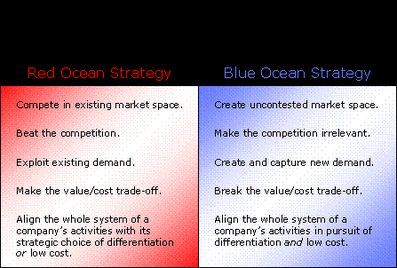I was browsing through the ISB yahoo groups. It was a nice feeling to see people doing what we used to do last year, this time. Lots of speculations…lots of views are floating on interview cracking objectives. So let me keep this post for providing my inputs on interviews and what it takes to create an impact during the interview process.
So what does it take to convert an interview call into the final offer? Difficult question and different people have different methods of proving themselves. However certain things are important for almost kind of interviews.
(1) Remaining cool and positive throughout the interview: Staying cool and positive is perhaps the most important aspect of cracking an interview. Interview is normally a personality test. According to me, it rarely targets to test the knowledge (at least at MBA entrance level). The panel doesn’t want to know if you know the answer of something. Instead they may be more interested to find out how you react when you realize that you don’t know about something. It is very natural to get nervous during interviews and one should learn how to handle nervousness. From my experience of interviews, I feel that bringing out the picture of an optimist normally helps during interviews.
Two people saw out of the window- one saw the stars and other saw the mud.
(2) Be yourself and be truthful: Normally people try to imitate others or try to misrepresent facts. This is not a good idea as people who conduct interviews are normally very smart people and can easily make out any misrepresentations. So if you are applying to other schools don’t hide this fact. Also let the panel know of the options you have in case they ask you what path you plan to follow in case you don’t make to the school. Understand your essays and resume well enough to answer back any questions related to your application package. Mind you again, these questions are just targeted to understand the real person within you. Be frank…be soft….and be confident. Being confident is very different from being assertive. All these traits can be imbibed if you are just yourself.
(3) General soft interview skills: These are small things, but create great impact. The way you dress up, the way you enter the panel, the way you sit of the chair, the way you hold your file, the way you wish the panel…are small things but are extremely influential skills. These things provide a kind of first impression. It is a good idea to practice a couple of mock interview sessions to get a good grip on these skills.
(4) Maneuvering the discussion: This is a skill which involves maneuvering the topic of discussion to the topic of your interest. For instance, if you are interested in History, you should be able to carry the discussion towards History. This will make you more confident during the interview and will help the panel know about your special interests and skills.
(5) Don’t carry notions: It is not a good idea to carry impressions about the panel based on the experience of other people. However, it may be good idea if it is possible to know your panel before the interview. Different people have different views about the panels and so it really doesn’t make any sense to enter the panel with a bias, which is based on the judgment of another person.
(6) Get to know the panel during the interview: It is important to know the panel during the interview. Especially during the introduction, you should make sure that you don’t forget the names of the people who just introduced themselves to you, when you introduced yourself to them. Be friendly with them, but know the limits.
(7) Don’t get into minute detail of any single topic: The interview is supposed to provide an all round view of your personality. So don’t get into the minutest details of one topic, unless specifically asked by the panel. Maneuvering is important, yet it is a good idea to talk about as many different topics as possible during the interview time. This will keep the interview panel involved and interested in you. It is good to be humorous, but never go beyond line of demarcation. Never turn into a self created joker.
(8) Never be desperate: Never be desperate before the panel. If you are good enough, the school needs you as much as you need them.
This is all what I can remember on my take on interviews.
